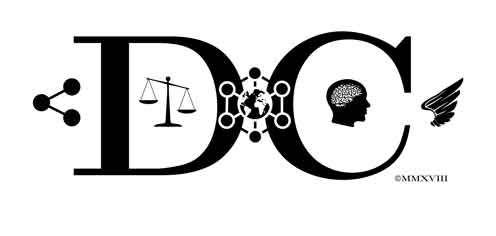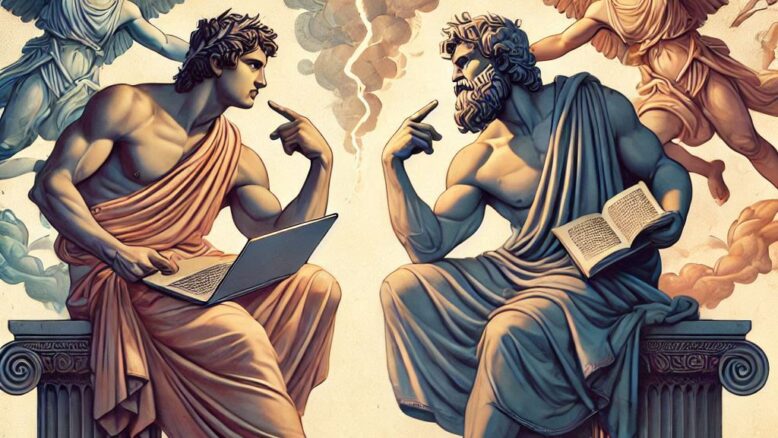Plato’s tale of two ancient Egyptian gods discussing the invention of writing debates the same challenges we face now in the digital age, suggesting these issues have been around for a long time, and that we have historical wisdom to help deal with them.
This post is a summary of the article Theuth, Thamus, and digital civics: Plato’s formulation of memory and its lessons for civic life in the digital age @ Memory Studies
This blog entry comments on the story of Theuth and Thamus: an ancient tale related by Socrates, and recorded in the work of Plato, in the dialogue, the Phaedrus. The story is deeply relevant to today’s world, because it explores a topic we deal with every day of our digital lives: how do we deal with new communication technologies?
Socrates tells the tale after discussing the issues that can arise from writing, telling his young friend the story of what happened when writing was first invented in ancient Egypt: a time that was ancient even to Plato in 400 BC.
Theuth, part time ibis (a bird) and full time god of inventions, tells Thamus, king of Egypt, that he has invented writing: a way we can record knowledge so that we never forget anything. Thamus, appalled, asks what happens when people look at information without knowing how to understand it properly. When Theuth cannot answer to his satisfaction, Thamas observes the difficulties that will arise as misinformation is allowed to develop and spread without context.
But it’s Thamus who is deeply skeptical of writing- the cutting edge communications technology of its ancient day.
As the two gods argue out what will be best, it becomes clear that both have reasonable and important arguments to make. What happens when information is taken out of context? But what happens when we also refuse technology and stand still? The only way you can see a path forward is to balance their concerns, admitting that we need innovation and must move forward, but we must also do so carefully, and with wise reason.
The story also helps us understand what Plato’s contemporaries were probably debating about the introduction of a new communications technology into their world. The impact it had on them, and the ways in which it changed their communities. Plato’s dialogue, in which the story of Theuth and Thamus appears, occurred at a time when there was a major development of new scientific breakthroughs and discoveries- not unlike today.
Importantly, Plato’s ideas have lots of applicability to our digital age scenarios, in that we can ask what happens with our new digital communications technology breakthroughs? Especially when we decontextualise information and publish it for everyone to see? What happens when we forget to be kind and compassionate to one another when we make mistakes, and how do recorded mistakes get held against us over the long term? (This is particularly pertinent to school students who have experienced bullying through the digital recording and sharing of a number of behaviours), should we simply employ new technologies for their own sake? And how might we use technology to develop trusted networks where we can secure our data?.
There are some solutions we can offer to these long-standing challenges; challenges that Plato himself seems to present as paradoxical, but hints at age old ways of approaching them. We can use important mechanisms, like the rule of law, to create and enforce rules. We can also find ways to use emerging technologies to support notions of privacy and secure our data, for instance, through data encryption and the responsible use of blockchain technologies to secure trusted networks. We must also remember the value of wisdom, and especially humility and compassion particularly in digital age contexts, for instance, through digital civics education.
And finally, when we look at Plato’s story, we can see just how long the challenge of decontextualized information has been a concern for humanity. The issue is difficult for us now, for Plato in the 5th century BC, and for Theuth and Thamus over a thousand years before that. If our struggles with new communications technologies have persisted for thousands of years, then perhaps, we can view our current challenges and obstacles with a gentle perspective. We probably won’t solve them today- but we do need to keep trying and finding better ways to work together.
With so many challenges to face, do we benefit from all this new communications technology? Well, it’s always worth remembering that the only reason we know Socrates’ story, is because Plato wrote it down.


